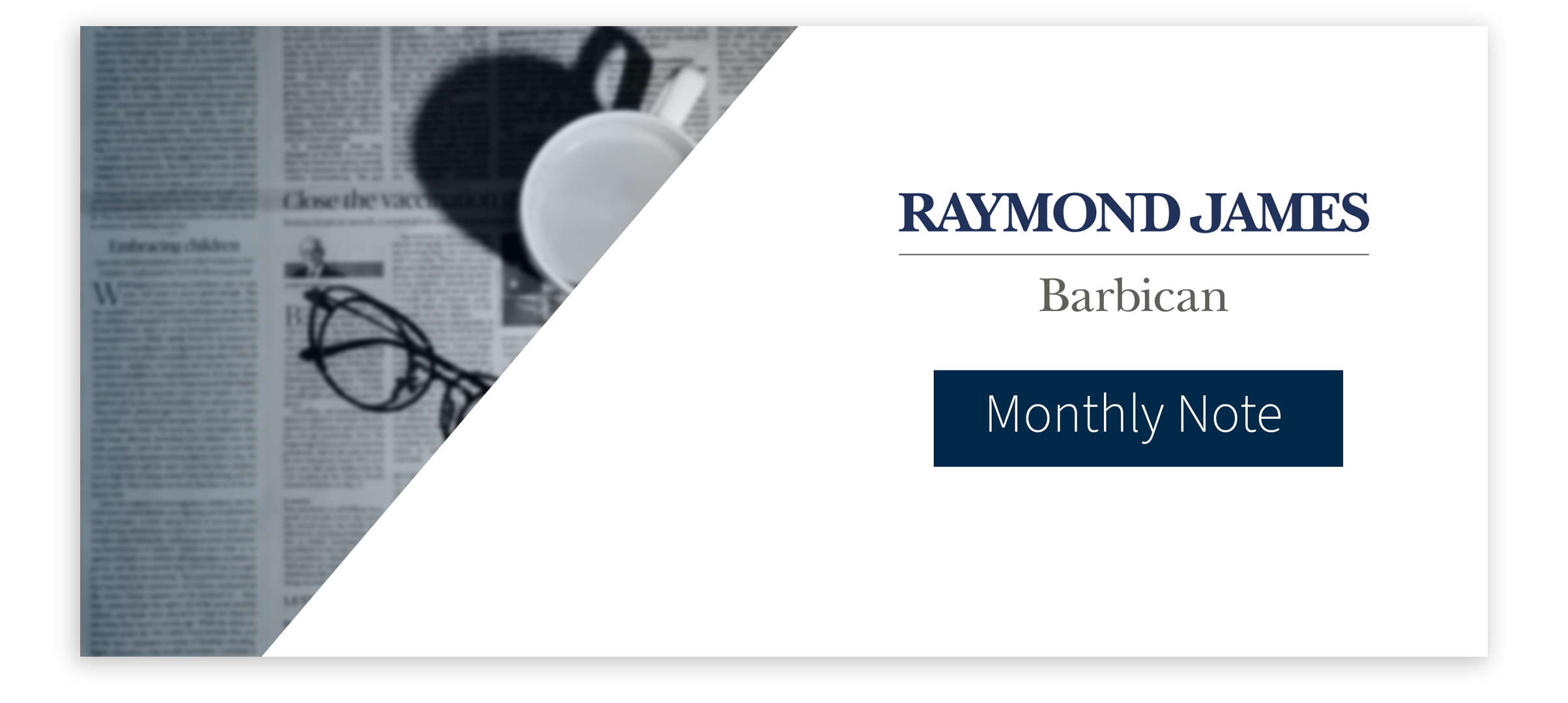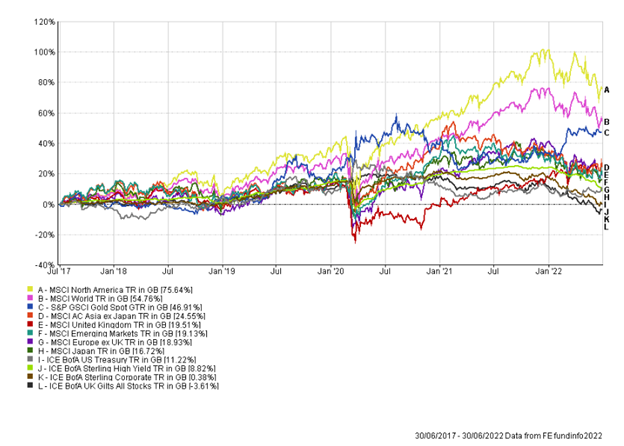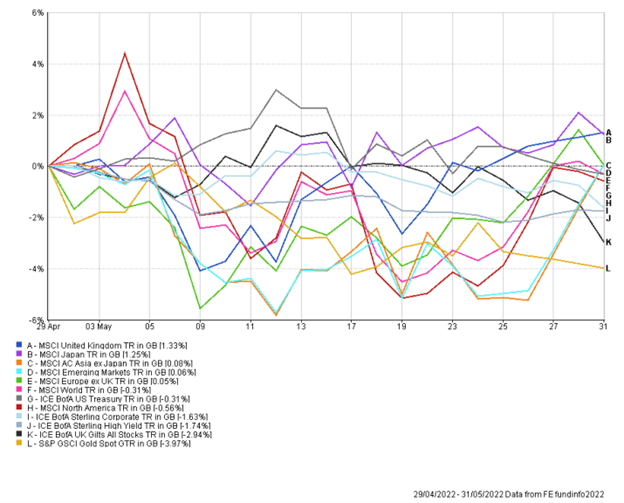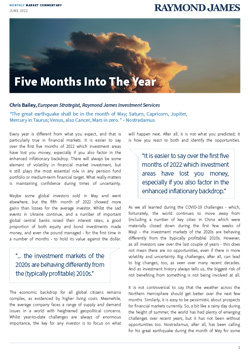A busy week with politics dominating the headlines in UK and Europe, while inflation data and company earnings were the focus across the Atlantic.
The race for the Conservative leadership kicked off this week, with initial voting rounds commencing and candidates being whittled down. There are now only five candidates remaining, with Sunak, Mordaunt and Truss amongst the favourites. We do now know the new Prime Minister will be in place by 5th September.
Political turmoil was not confined to just the UK, with Italian Prime Minister Mario Draghi offering his resignation after losing the support of coalition partner, the Five Star party. The Five Star party do not believe Draghi is doing enough to aid with the cost-of-living crisis. In an interesting twist, Draghi’s resignation was rejected by the Italian President – the current picture is a little unclear but there should be more clarity next week with Draghi due in parliament on Wednesday.
All eyes were firmly focused on US inflation data on Wednesday. As has been the trend this year, the data came in higher than consensus, and reached yet another new 40-year high. The 9.1% inflation reading was above the expected 8.8% and will cause further headaches for the US Fed. The market is now digesting the potential for a 100bps (1%) interest rate hike later in July. The bond market’s reaction was muted compared to recent months, with markets looking through the headline data and focusing on the likely global slowdown which could ease inflationary pressures later in the year. President Biden said that US inflation was “unacceptably high” but stated that it is also “out-of-date” and doesn’t reflect the recent drop in oil and gas prices.
US earnings season kicked off, and initial results from some of the major US banks highlighted potential risks in the global economy. JP Morgan’s results came in below expectations with the bank boosting its reserves to cover potential future loan losses. Morgan Stanley missed profit estimates for the first time in nine quarters. It wasn’t all doom and gloom however, with Pepsico beating revenue and earnings forecasts – consumers are clearly not cutting back on things like fizzy drinks (Pepsi) even as prices rise!
A trend of 2022 has been the strength of the USD ($) versus a basket of global currencies. The currency is at a 20-year versus global currencies and during the week reached parity with the Euro (€). Sterling (£) continued its slide against the USD briefly falling below 1.18. The strength of the USD is a problem for countries who need to import food and energy (which is priced in USD). It’s part of the reason why the recent falls in oil prices are yet to be reflected at the pumps in the UK. Brent Crude oil prices have fallen 15% over the last month on global economic slowdown concerns. Copper, which is very economically sensitive, continued its slide this week, falling another 1.5% on Friday morning. The metal is now down 23% over the last month and 27% compared to one year ago. Gold has struggled of late and is heading for its 5th weekly decline. The stronger USD has acted as a headwind for the precious metal.
There was a rare moment of sunshine for the UK economy with GDP rising 0.5% in May and returning to growth. This positive data was coupled with stronger than expected manufacturing and construction data.
The summer months are normally characterised by thin trading volumes and low volatility, as investors and workers go on holiday and take time off. However, with the current backdrop of high inflation and geo-political risks, there is little likelihood of a quiet summer. We believe in these volatile times active management and pro-active asset allocation can help support and insulate portfolios.
Andy Triggs, Head of Investments & Nathan Amaning, Investment Analyst
Risk warning: With investing, your capital is at risk. The value of investments and the income from them can go down as well as up and you may not recover the amount of your initial investment. Certain investments carry a higher degree of risk than others and are, therefore, unsuitable for some investors.








